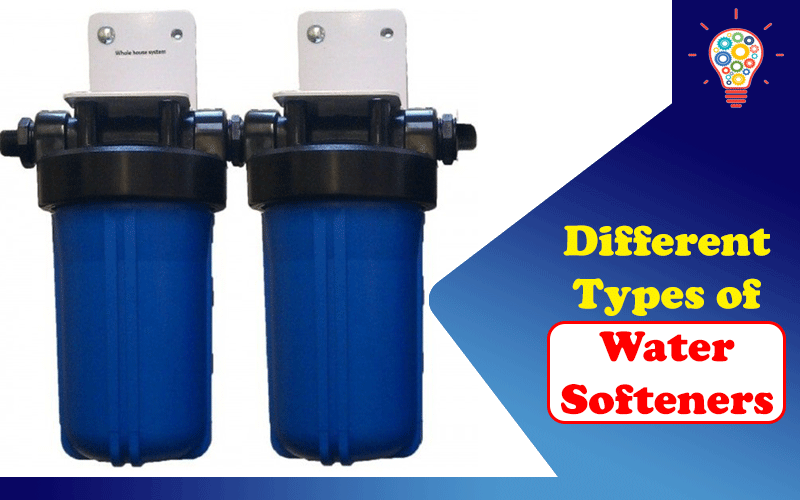Did you know that hard water in your home will cause mineral buildup in plumbing, water heaters, and fixtures? If you are currently dealing with hard water and are now looking into a water softener system to help with this nuisance, you are in the right place. We have put together this short guide to teach you about the most common types of water softeners.
Keep reading to learn the differences between the most common softener systems and we will also cover a little bit more about how does a water softener works.
Table of Contents
1. Ion Exchange
This type of water softener system is one of the most popular types of water softeners out there. An ion exchange system uses resin, salt, electricity, and a discharge line. An ion exchange system has been used for decades to soften water.
The way it works is that the magnesium and calcium ions that make up most of hard water are charged with positive ions. Then resin inside the ion exchange tank is negatively charged, which means, that the magnesium and calcium also become negatively charged. This is what gives you soft water.
You can check out the Culligan water softener if you are interested in an ion exchange system.
2. Dual-Tank Softeners
This system will run at all times and it is best for facilities that need a constant supply of water or for a larger household. Usually, when the water is regenerating in other options, you will have zero access to soft water but with a dual-tank system, you won’t have to worry about this.
3. Electromagnetic
If you want something that is more environmentally friendly then an electromagnetic softener is your answer. These systems do not require any salt replacements or a discharge line. Another pro is that the installation is a lot easier than an ion exchange system.
The way this system works is that it uses strong magnetic fields to change the structure of the calcium and magnesium found in hard water.
4. Salt-Free Softener
With this option, you will not have to continuously upkeep it because it does not regenerate salt. The way this system works is by neutralizing the hard minerals found in the water to help prevent the minerals from sticking together and creating buildup.
These systems tend to be a bit more expensive because you never have to worry about adding large bags of salt or doing upkeep every week. In the long run, they will end up costing you less than other systems that are cheaper upfront.
Now You Are Familiar With the Different Types of Water Softeners
We hope that now that you are aware of the different types of water softeners, you can make an informed decision on which system is best for your needs.
Did our blog post help you out today? Please keep browsing the rest of this section for some of our latest household tips.

